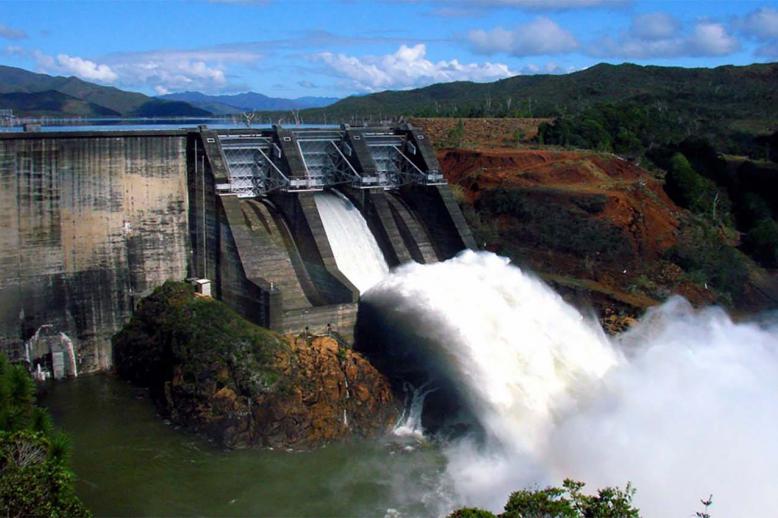Gaza Deaths Highlight Urgency of Mideast Peace
LONDON — The killing of at least 17 Palestinians and wounding of hundreds more during protests near Gaza’s border with Israel has highlighted the urgent need for a solution to the problems of the besieged strip and the broader Israeli-Palestinian conflict.
The Palestinian deaths resulted from Israeli fire after thousands of Palestinians marched near the border to mark Land Day on March 30. Protests are expected to last until May 15, the day after Israeli independence that is commemorated by Palestinians as the day of catastrophe.
The Palestinian-Israeli conflict dates back to the founding of Israel, but tensions have grown since the election of US President Donald Trump, whose policies appear to have worsened the already dire humanitarian conditions in the Gaza Strip and reduced the odds of a diplomatic breakthrough between the two sides.
“The dangerous combination of absence of political process, severe restrictions Israel and Egypt place on access and movement of people and goods in and out of Gaza, intra-Palestinian rivalry and deterioration in humanitarian conditions has previously led to three wars between Israel and Hamas,” wrote Shira Efron in an opinion article in the website USnews.com.
“Today, the combined risk of violence and pandemic makes this small coastal enclave a ticking time bomb, and while neither Israel nor the US has the solutions to all of Gaza’s water and health woes, the Trump administration’s decision to withhold funding to the United Nations Relief and Works Agency (UNRWA), the UN fund that supports Palestinian refugees, could only worsen the situation,” Efron said.
With Gaza’s conditions deteriorating for decades, such warning signs have long been visible.
“We’ve been hearing about the imminent collapse of Gaza’s drinking water, sewage, health, and electricity systems since the outbreak of the Second Intifada 18 years ago,” wrote Shir Hever in an article for the website 972mag.com.
In an opinion piece for the New York Times, Gaza-based writer Rawan Yaghi said the recent march was an attempt to draw attention to the conditions of the tiny Palestinian territory. “Once again, Gaza the Injured has come out to protest, and to scream for life,” she wrote.
Israel blamed Hamas for promoting what it called “dangerous” border protests. Analysts noted that while Hamas did voice support for the demonstrations, they did not represent the entire movement.
“Hamas is not Gaza and Gaza is not Hamas,” wrote Marilyn Garson in Haaretz. “Civilian Gazans’ willingness to walk to that fence is not a measure of their support for Hamas. It measures their yearning to express themselves as humans and claim their freedom, even at immediate risk.”
Anshel Pfeffer, a Haaretz correspondent, suggested that by ignoring the plight of Palestinians in Gaza, Israel is handing a “victory” to Hamas.
“The Hamas leadership will never say so publicly but it realises it has lost every single round since the bloody coup in which it took over Gaza in 2007,” wrote Pfeffer. “With no forward thinking on Gaza’s future, Israel’s leadership is squandering Israel’s victory over Hamas and giving it the opportunity to win the next round.”
The Palestinian deaths prompted a strong condemnation of Israel by human rights groups, Arab states, the international community — with the exception of the United States — and the Palestinian Authority, an arch-foe of Hamas and until 2014, Israel’s peace negotiations partner.
United Nations chief Antonio Guterres and the European Union called for an independent investigation but Israel rejected the calls and vowed a tough response to the protests. An escalation could bring unintended consequences.
“Three senior Hamas official said the group wants to avoid another devastating war with Israel, but border tensions could quickly escalate — especially if Israel makes good on threats to target Hamas positions deeper inside Gaza unless the protests stop,” read a report by the Associated Press.
What makes Gaza such a pressure cooker is not just the humanitarian crisis but the fact that the majority of its population descend from Palestinian refugees. Without a political solution to their longstanding grievances, including the issue of Palestinians’ right of return, tensions are likely to continue.
“Diplomats all over the world might shrug away the right of return as a right that cannot be exercised. Yet for the people on the ground, addressing the injustices of 1948 remains at the heart of their quest for freedom, justice and equality,” wrote Tareq Baconi in the Guardian.
While the recent protests and their fallout reflect the growing need for a resumption of the peace process, it is unclear when and if that will happen. And following Trump’s recognition of Jerusalem as Israel’s capital in December, any Palestinian-Israeli peace talks with US mediation appear to be a ways away.
Mamoon Alabbasi is Deputy Managing Editor and Online Editor of The Arab Weekly. You can follow him on Twitter @MamoonAlabbasi
Copyright ©2018 The Arab Weekly




